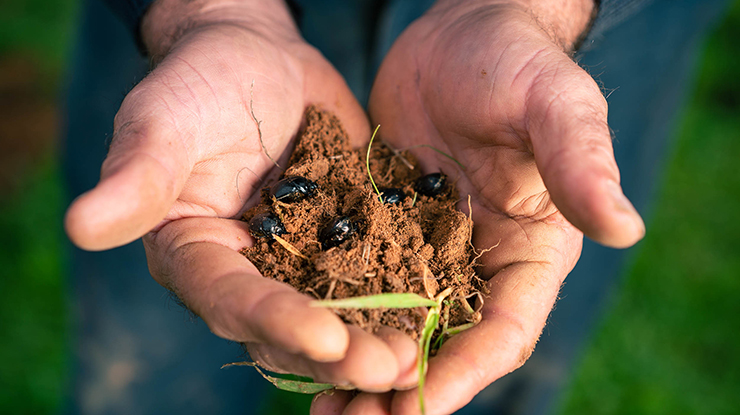
Dung beetles
Dung beetles play a critical role in Australia’s grazing ecosystems. By burying dung in the soil, beetles improve the flow of water, nutrients and carbon into the root zones of pastures.
Stay informed with a short, sharp monthly summary of MLA’s latest research reports.
MLA’s environmental sustainability research and development (R&D) investments aim to improve the short and long-term sustainability of the natural environmental, while simultaneously maintain and support a productive red meat industry that meets community expectations.
Successful adaptation and prosperity for the Australian red meat and livestock industry relies on investments into the efficient and effective management of soil health, water, methane emissions, biodiversity and climate variability.
Changes in climate, regulations, market requirements and community expectations demand that all sectors in the value chain continually adapt to the evolving operating environment.
On-farm activities include the innovation and delivery of R&D relating to:
Dung beetles play a critical role in Australia’s grazing ecosystems. By burying dung in the soil, beetles improve the flow of water, nutrients and carbon into the root zones of pastures.
The Australian red meat and livestock industry has set the ambitious target to be Carbon Neutral by 2030 (CN30). Find out about MLA’s approach to achieving CN30 and the benefits to industry, consumers and the community.
Over recent decades there have been consistent changes to the climate. It’s critical that climate variability is considered and managed in the livestock industry as it can have broad-ranging impacts.


